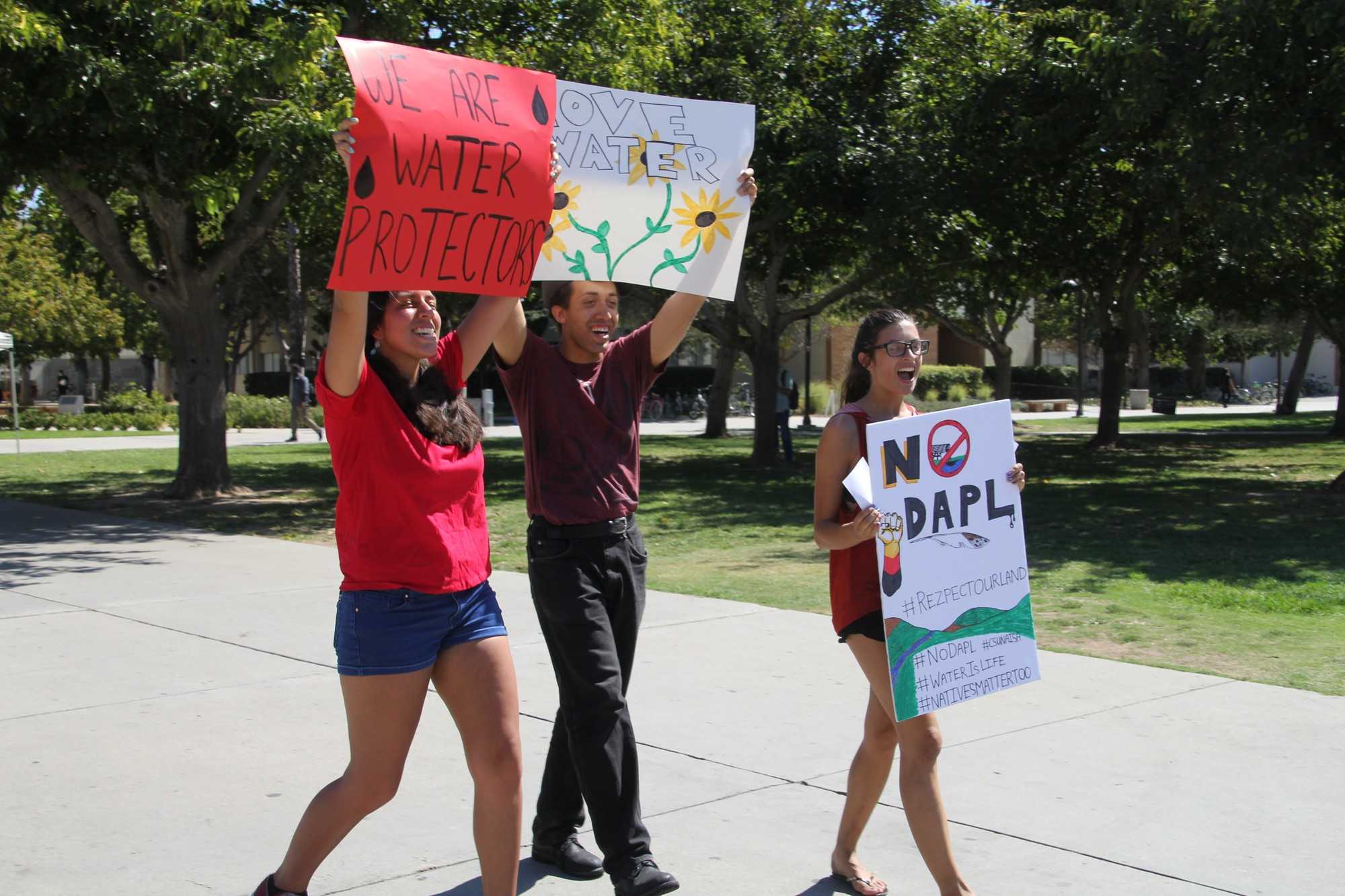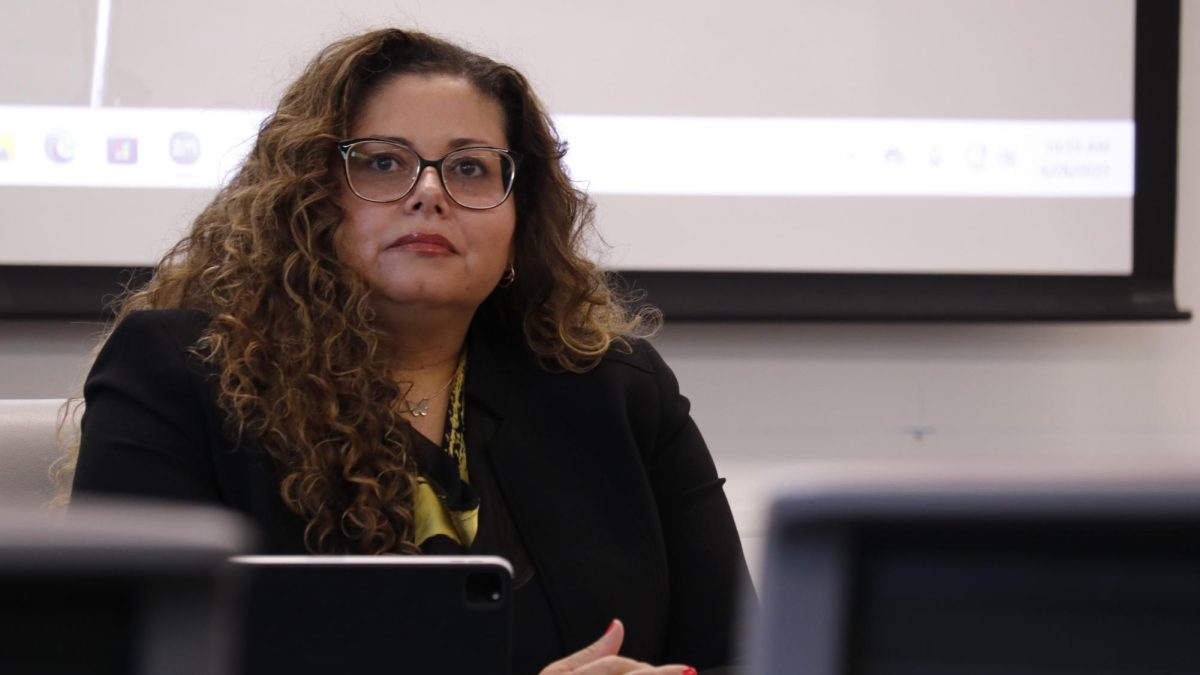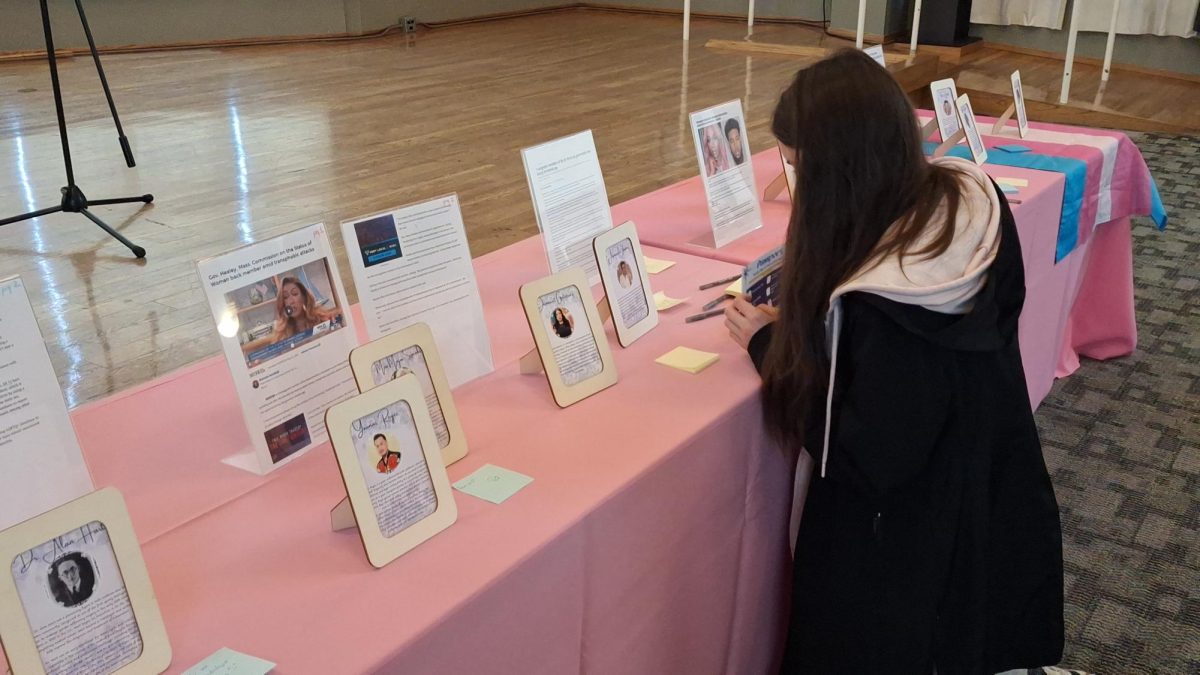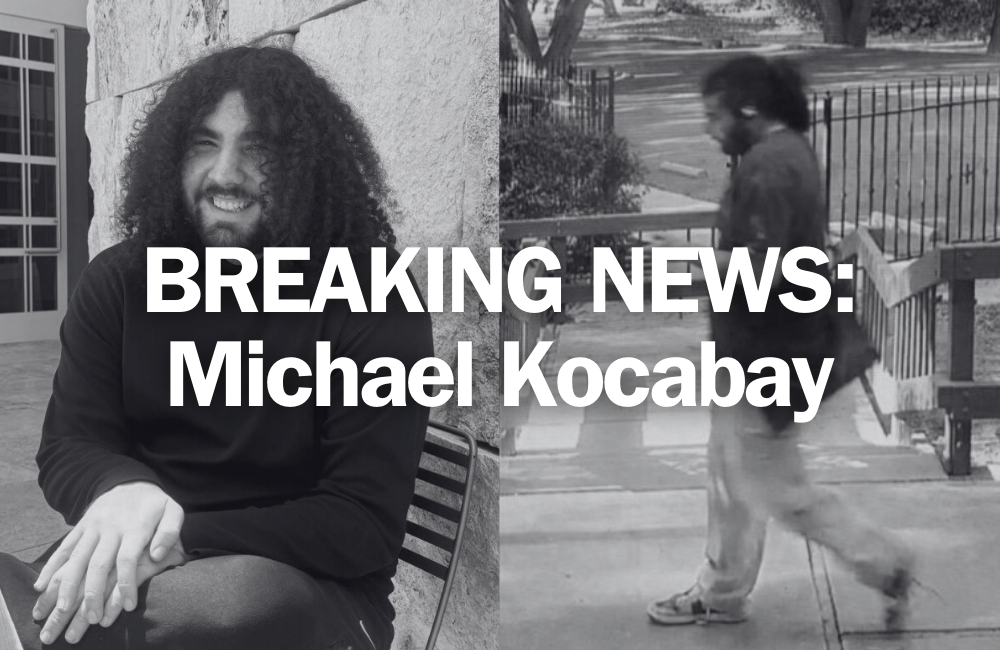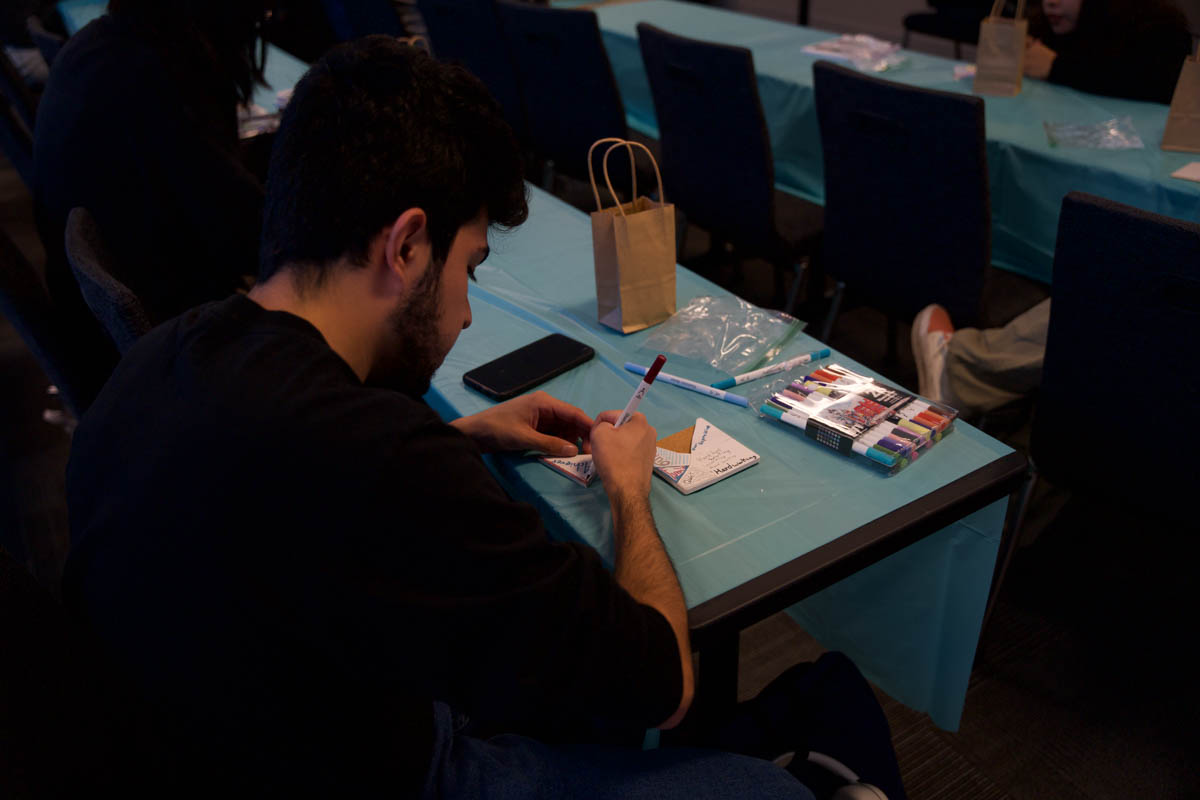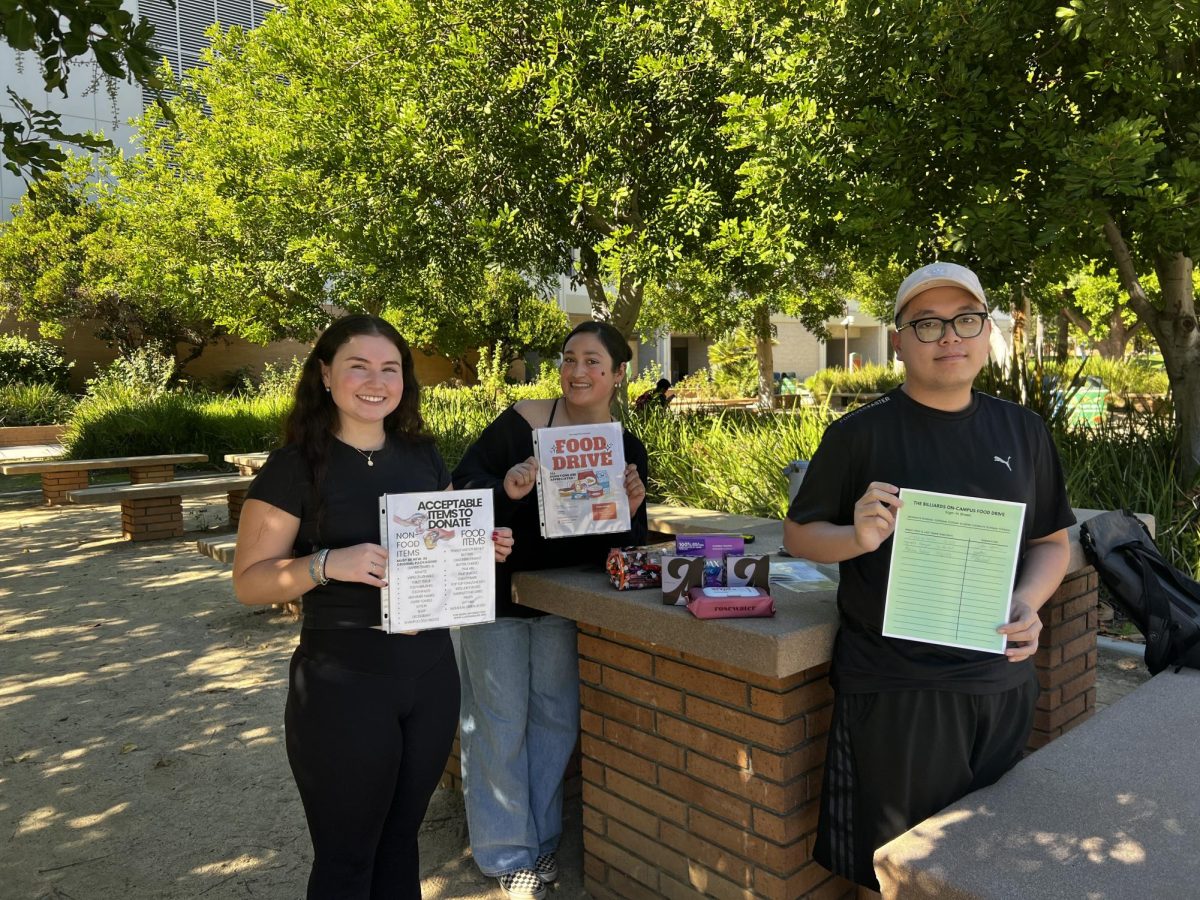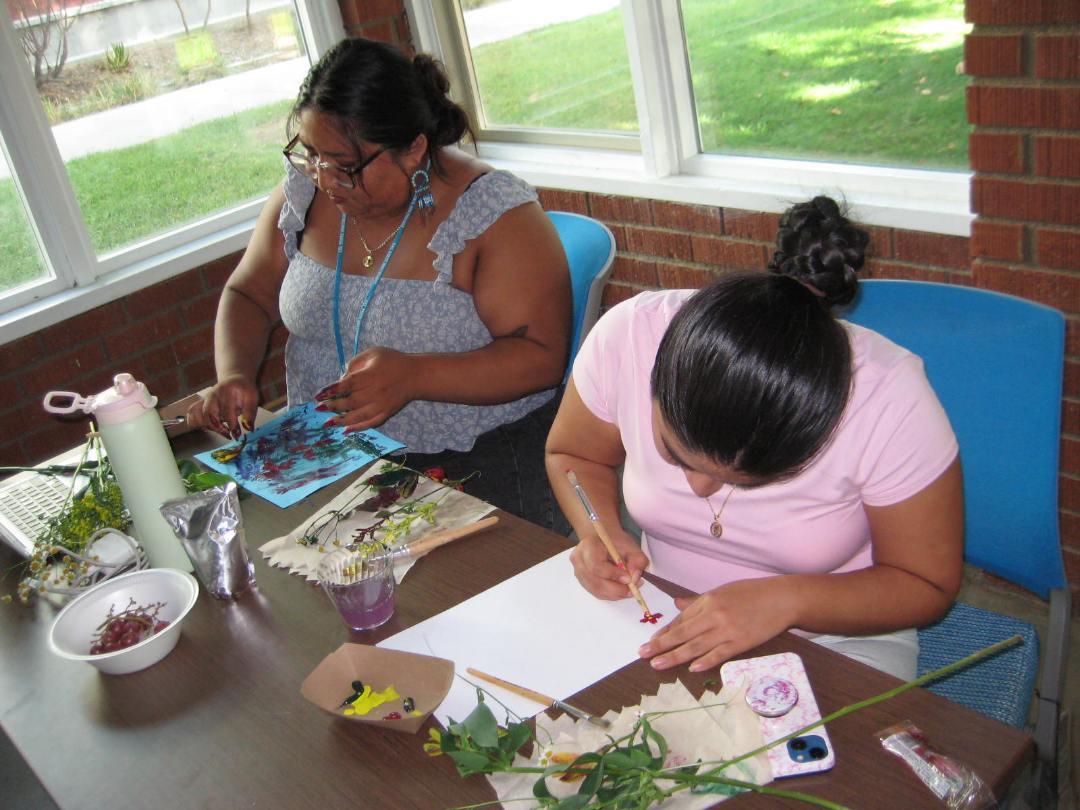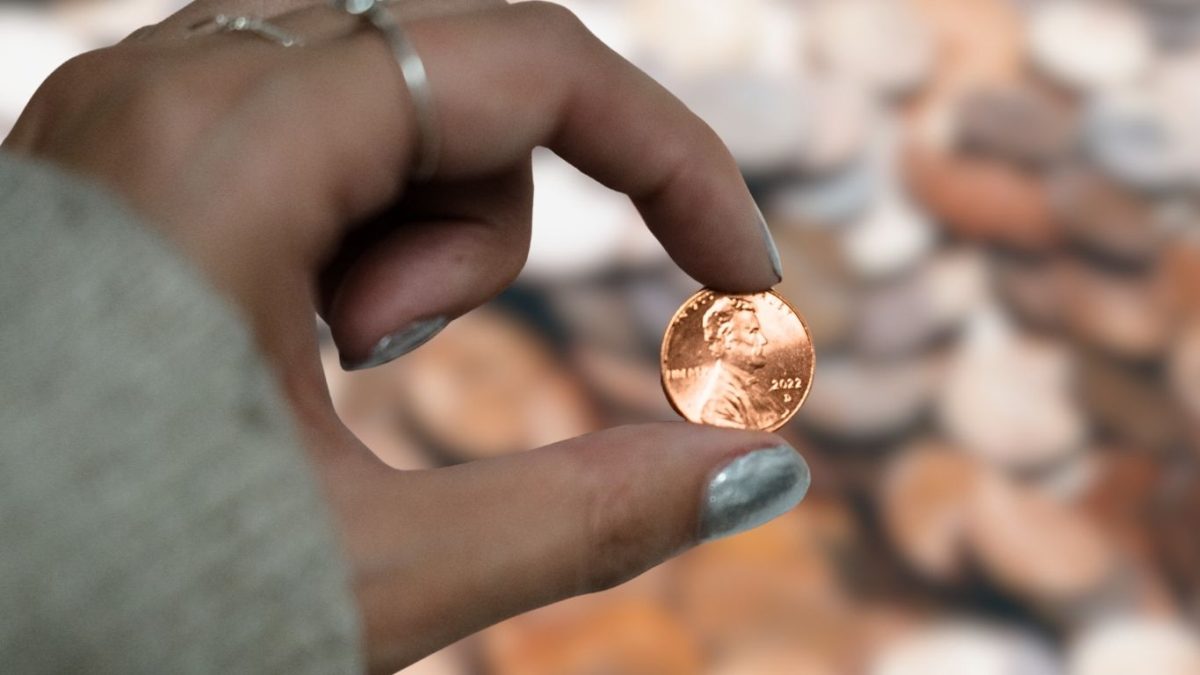A line of students dressed in red t-shirts held up prominent posters in order to capture attention on the Oviatt Lawn.
As the slogans “Love water, not oil” and “No justice, no peace,” are chanted with loud, passionate voices, students walking by them remove one earphone and think to themselves, “What is going on?”
Wanting to be classified as “water protectors” as opposed to protestors, the members of the American Indian Student Association (AISA) are determined to make a difference. With many activists in North Dakota fighting to stop the construction of the controversial Dakota Access Oil Pipeline, AISA is spreading awareness to CSUN.
“We’re trying to prevent this construction because the pipeline goes over into the main water source of the Standing Rock Sioux tribe,” Kylee Flores, member of AISA and kinesiology major, said. “This oil company just so happens to be unreliable and there’s a lot of leakage.”
Because the water is at a high risk of being contaminated by an oil spill, the tribe is fearful of the project. It will not only affect their drinking water, but disturb sacred sites in their ancestral land.
“Today’s demonstration is to raise consciousness because it doesn’t get much coverage in the mainstream media,” Armond Hardwick, AISA member and humanities major, said.
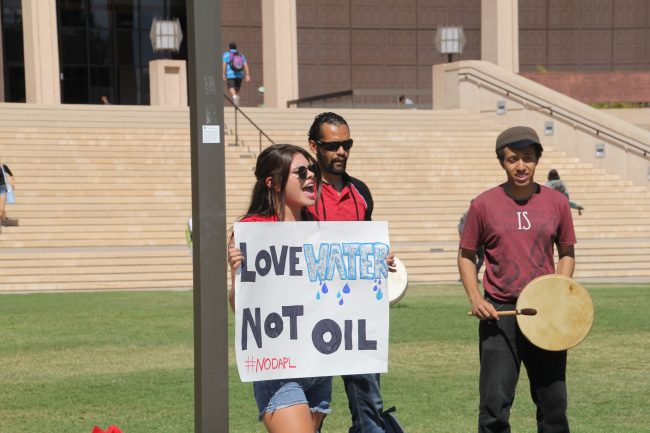
With a great amount of support from big corporations such as Wells Fargo and Bank of America, Hardwick said because there is so much money invested with the Dakota Access Oil Pipeline, these companies would rather not exploit it for the world to see.
“They don’t want to hurt their own businesses,” Hardwick said. “So, of course, they want to keep that out of the media before you discover those ties and eventually raise the threat to boycott.”
Flores said since the beginning of time, the history and culture of Native Americans have been overshadowed. Since colonization, there have been hidden facts that society is not aware of and believes big promoters are trying to continue keeping it that way.
“We can’t even post about it on Facebook because it’ll get taken down,” Flores said. “We’ve tried putting up links and they’ve just been inactivated.”
As members of the association continue to hand out flyers and speak out loud about the project, they keep in touch with a friend who is also a “water protector” in North Dakota. As students on campus kindly walked by, nod in approval or take a flyer, activists in North Dakota are not as lucky.
“Our friend and her family members have been tweeting about it, but the tweets just disappear,” Hardwick said. “Even yesterday they were saying that gas was being thrown at them.”
According to NBC News, about 30 people have been pepper sprayed and six were bitten by security dogs. The more victims get injured during the protest, the more passionate the water protectors in both CSUN and North Dakota become.
It’s more than just a challenge to let their voices be heard, but it almost becomes personal. The word “tribe” is also associated with the words, blood, people, and society. Not only is the Standing Rock tribe fighting to keep their roots and family land intact, but members of AISA become one with them.
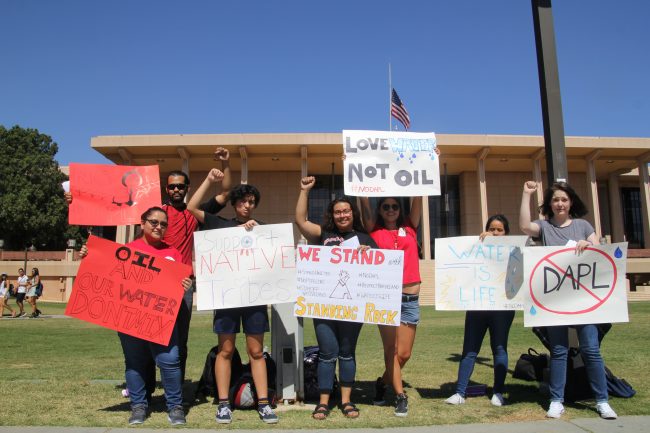
“It’s personal for me because I am part Native American,” Lora Rosman, AISA member and psychology major, said. “We’re fighting for North Dakota and for justice to protect their land.”
Flores and Hardwick, who are also Native Americans, share the same drive to help and connect with Standing Rock as a family.
“There are definitely indirect ways in which we can help out and at least we’re spreading some level of awareness,” Hardwick said. “It’s the first step.”
To help keep the water protectors in North Dakota warm as they camp out and stand for hours in the cold temperatures, AISA members will soon be taking more action by asking for donations. No matter what the temperature, they said, it’s for a good cause.
